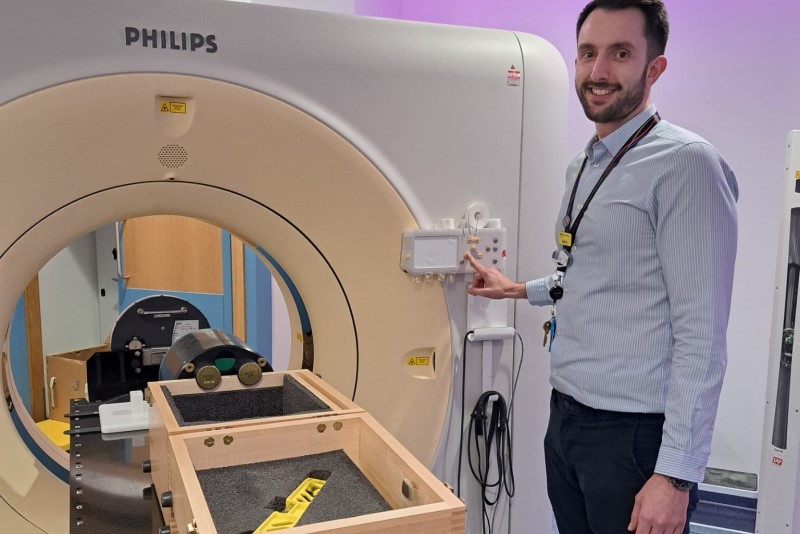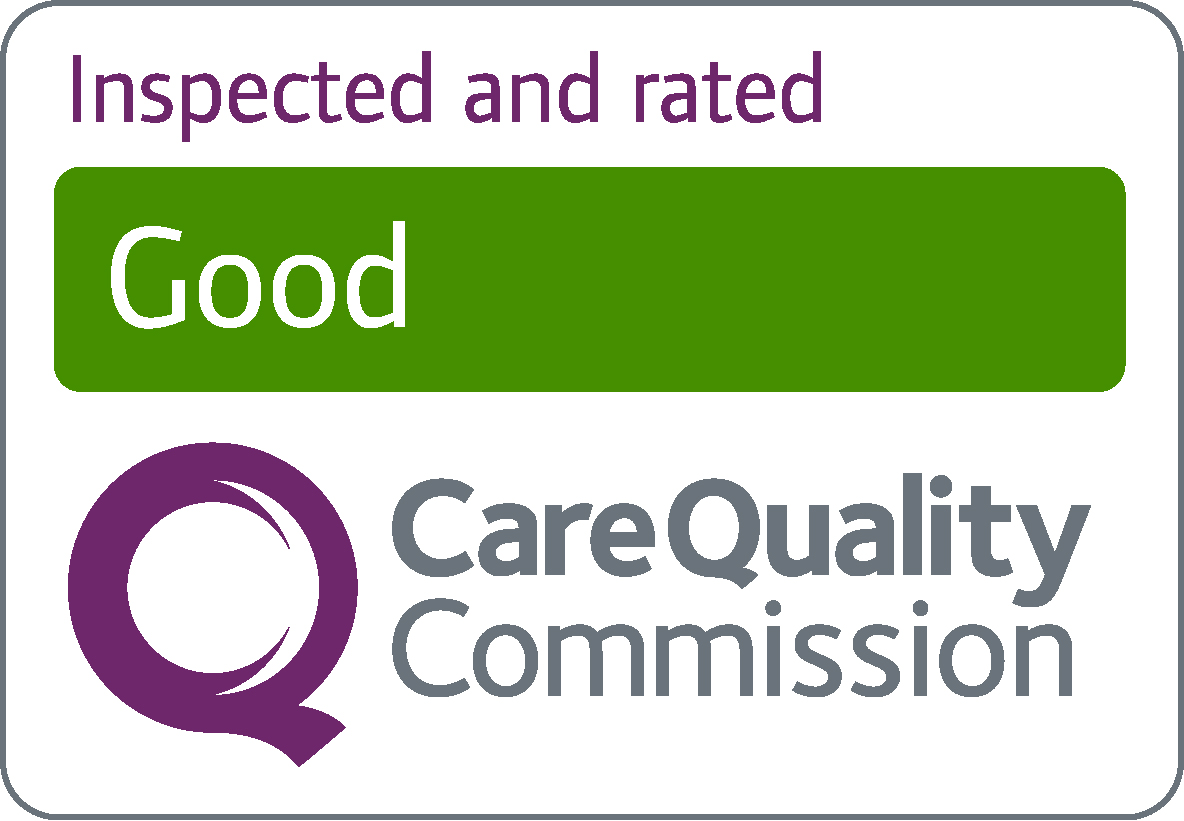Healthcare Science Week – AI reducing scan times
Date of release: 12 March 2025
Artificial Intelligence (AI) is helping to reduce scan waiting times for patients in Wolverhampton and South Staffordshire.

Harry Poole, Clinical Scientist at RWT, at the CT scanner with a caphan (wooden box) which tests image quality
Scans at the Community Diagnostic Centre at Cannock Chase Hospital now take an average of 10-15 minutes less thanks to the new technology – just one advantage being promoted as part of Healthcare Science Week.
Harry Poole, Clinical Scientist at The Royal Wolverhampton NHS Trust (RWT), is supporting this pioneering work.
Based at New Cross Hospital, he ensures imaging equipment is working correctly, keeping patients and staff safe during MRI, X-ray and CT scans.
“The MRI scanners at RWT are using AI technology to speed up scan times for our patients,” he said. “Typically, MRI exam times can take a long time but now scans have been reduced by up to 50 per cent.
“The MRI scanner still creates the images as normal, but AI removes background noise which makes the image much clearer.
“This means we don’t have to scan for as long. This improves the patient experience while maintaining image quality.”
Harry, 35, has worked in Medical Physics for 13 years and wants to use Healthcare Science Week to promote the role of a Clinical Scientist in the NHS.
“I’m a massive geek – I’ve always loved science and maths for as long as I can remember,” he said.
“I didn’t know what I wanted to be when I was younger but I was advised to do physics at university and it was only then I discovered medical physics.
“Healthcare science is a large workforce that performs a vital function but it can be overlooked because it’s not frontline.
“I want to raise awareness to get people talking about healthcare science as a career so there’s more investment in the future.
“To become a Medical Physicist, you usually have to have a science degree, usually physics, and then undergo a three year on-the-job training programme.
“There are also options within Medical Physics to do apprenticeships or equivalence training.”
A physics graduate from Warwick University, Harry completed a Master’s (MSc) in Clinical Science, as part of the nationally approved Scientist Training Programme (STP).
He then spent more than a decade at University Hospitals of North Midlands NHS Trust in Stoke-on-Trent before moving to RWT.
Since that switch nine months ago he has helped initiate a number of projects.
“The Trust has become accredited to train a new generation of Medical Physicists in MRI and ultrasound,” he said.
“My role was new at the Trust; my main aim has been to standardise MRI safety with other centres from around the country.”
“This not only ensures safety at all times but allows better access for patients living in Wolverhampton and South Staffordshire.
“We have also been developing new safety guidance for the MRI team to ensure patients with implants can undergoing imaging safely.
“We are at the start of an AI revolution in healthcare. Clinical Scientists are vital to help ensure this technology is correctly implemented into clinical practice to provide the best service for patients.”

